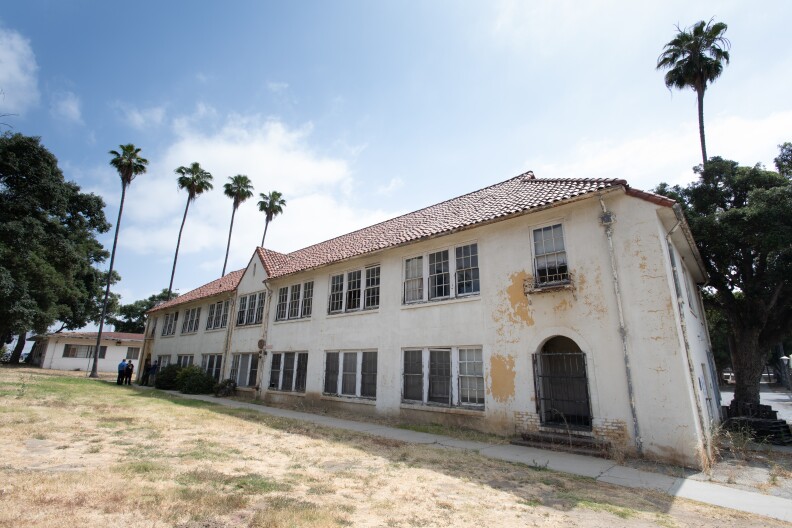Los Angeles County is moving forward with plans to establish new mental health beds and supportive housing units at the Metropolitan State Hospital campus in Norwalk. The facility, which has been operational since 1916, currently hosts around 800 patients on its expansive 162-acre property, once home to thousands. The state-run hospital has seen better days, with many buildings now appearing abandoned. Recently, county supervisors approved a lease agreement with the state that facilitates the renovation of the campus.
In a significant step, California Governor Gavin Newsom signed legislation last year that paved the way for this lease. The county intends to renovate two deteriorating buildings to create 32 treatment beds, funded by $65 million allocated through Proposition 1. “We are facing a crisis,” said Kyla Coates, senior justice and mental health deputy for Supervisor Janice Hahn. “We cannot have unused empty buildings that are government-owned sitting around. We need to renovate them, reuse them and turn them into places where we can really provide care to those who need it.”
The renovation plans involve converting two buildings, each with 16 subacute beds. This design complies with the Institutions for Mental Disease (IMD) exclusion, a federal law limiting facilities treating adults with mental illnesses to a maximum of 16 beds if they wish to receive Medicaid funding. The new beds are intended to address what a February 2024 report described as the “most urgent resource need” for the county amid an ongoing behavioral health crisis. Experts suggest that Los Angeles County may require hundreds more subacute beds to adequately serve residents with serious mental health issues.
In total, the county’s initiative aims to renovate six buildings on the Metropolitan State Hospital campus. Plans also include constructing 50 one-bedroom apartments for permanent supportive housing and 70 interim one-bedroom apartments. This project, years in the making, envisions creating a comprehensive mental health community where individuals can transition from intensive treatment to housing on the same campus.
Coates highlighted the potential for the campus’s courtyard area, envisioning open spaces for gatherings, outdoor movies, exercise, and gardening. The design will also preserve the historical architectural features of the buildings, which hold landmark status.
While advocates welcome the utilization of the campus, concerns about transparency and institutionalization remain. Vanessa Ramos of Disability Rights California expressed cautious optimism but emphasized the need for clear communication regarding the treatment process. “What I would like to see out of the unused land at Metro is for there to really be pairing of treatment beds one-to-one with step down supports,” she stated. “We know that people can manage life outside of hospitalization.”
Eve Garrow, Senior Policy Analyst and Advocate with the ACLU of Southern California, echoed these sentiments, warning that settings like Metropolitan State Hospital could inadvertently create isolation. “Segregation separates people from their communities, creates an institutional environment that can quickly slip into a culture of discipline and control,” Garrow noted.
In response to these concerns, Coates assured that the campus’s location in Norwalk offers convenient access to public transportation and local amenities, facilitating residents’ connection with the broader community. The county plans to commence construction at the campus next year, marking a pivotal moment in addressing mental health needs in Los Angeles County.
